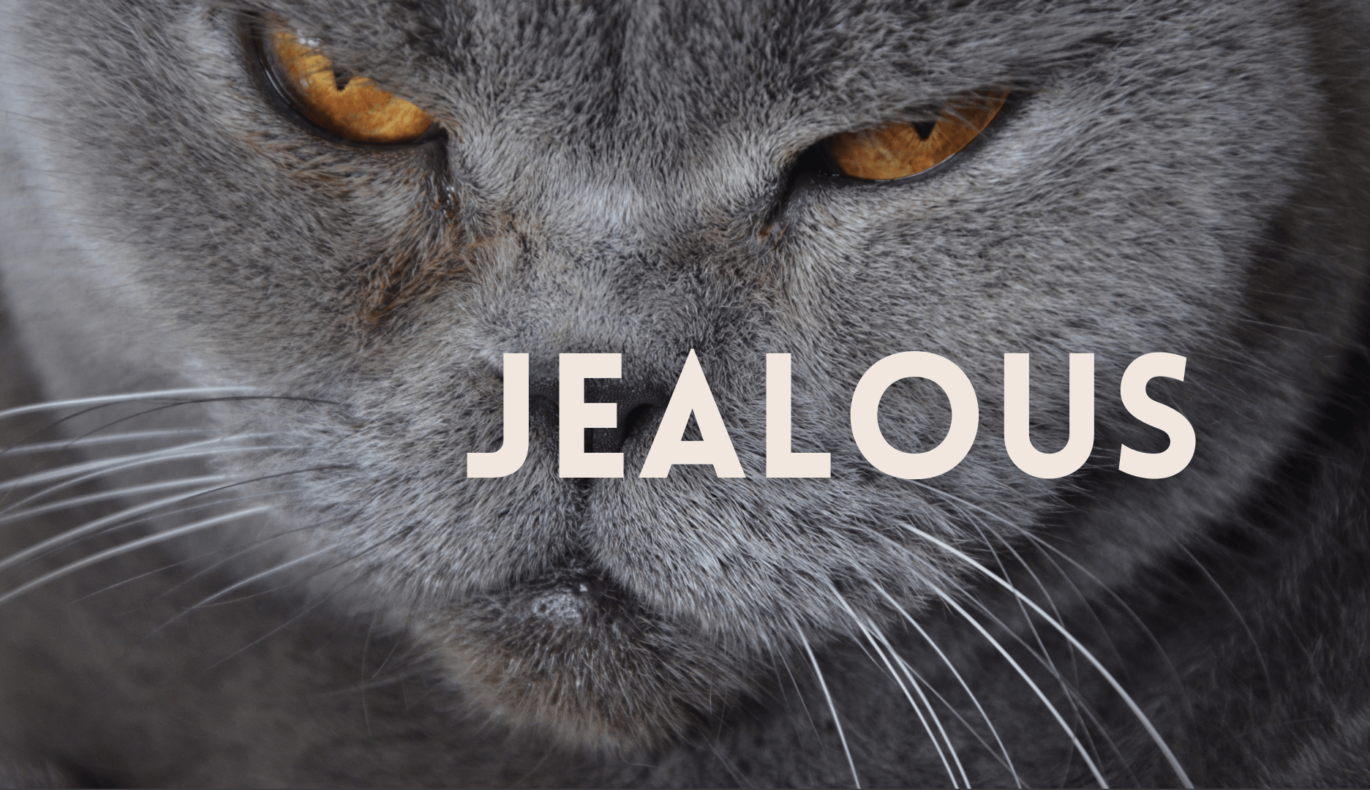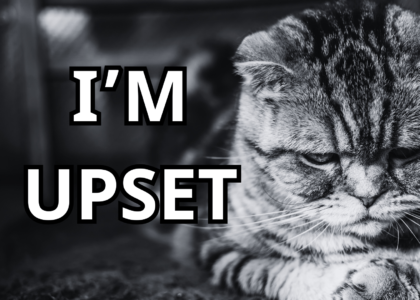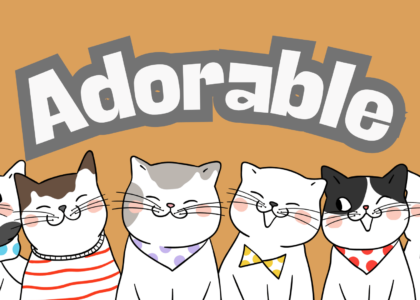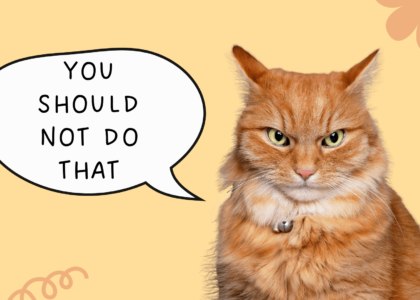You sit down with a plate of food, ready to enjoy your meal in peace, and then you feel it. That unblinking stare. You glance over, and there’s your cat—perched on the table, the counter, or maybe even the floor—watching. Studying. Judging. Their eyes follow every bite, every chew, every motion of your fork. They’re not making a sound. They’re not asking for food. They’re just… watching.
At first, you ignore it. You focus on your plate, pretending you’re alone. But then, the intensity of that stare starts to get to you. You take another bite, and your cat’s head tilts ever so slightly, like they’re analyzing your decision-making skills. Another bite, and their tail twitches. You pause, mid-chew, wondering what’s going through their tiny, furry brain. Are they plotting something? Are they waiting for you to drop a crumb? Do they think you’re a giant, incompetent cat who forgot to share the kill?
It’s unsettling. It’s hilarious. And yet, somehow, it feels personal.
Maybe your cat doesn’t even like human food, but that doesn’t matter. The second you sit down to eat, you become the most fascinating creature they have ever seen. It’s as if your meal has unlocked some deep philosophical crisis within them. “Why does the human get to eat this mysterious feast? Why do they chew like that? What is chewing?”
They never look at their own food this way. A bowl of kibble? No interest. A can of wet food? Sure, but only for thirty seconds before walking away like they weren’t just howling for it. But your food? That’s worth an in-depth psychological study.
If you try to break eye contact, they don’t. If you talk to them, they blink slowly, as if to say, You are not done explaining. And if you finally cave and give them a tiny, safe little taste? They’ll sniff it, maybe take a half-hearted nibble, then look back at you like you just failed a very important test.
It’s not about hunger. It’s not even about the food. It’s about you. And whatever secret knowledge they think you’re hiding in that plate.
Your cat doesn’t just want food. Your cat wants your food. Not because they’re hungry, not because they like the smell, but because you have it and they don’t. This is a crime. An injustice. A violation of the unspoken agreement that they, as the ruler of the household, must have access to everything you do.
It starts the moment you sit down. One second, your cat is pretending to be deeply asleep, dreaming of world domination or a particularly warm sunbeam. The next, they’re right next to you, materializing out of thin air like a tiny, judgmental ghost. Their eyes flick from your plate to your face, back to your plate, back to your face. Their ears twitch. Their tail flicks. They are waiting for an invitation.
But you, the selfish human that you are, keep eating. This is where the offense begins to sink in. Your cat does not understand portion control, mealtime etiquette, or the concept of personal space. What they do understand is that you are enjoying something, and they are not. And that is unacceptable.
At first, they try subtlety. A gentle head bump, a casual stroll across your lap, a single, innocent paw placed ever so lightly on your thigh, as if to say, “I am here. You may correct your mistake at any time.”
If you ignore them, they escalate. The paw becomes a tap. The tap becomes a nudge. The nudge becomes an attempt to climb onto the table, or maybe onto you, because if they can’t have the food, they will at least claim possession of the person eating it. They’ll rub against you aggressively, purring like they’re offering payment in affection. Some cats go further, knocking things off the table in protest or letting out a dramatic, drawn-out meow that says, “I thought we were in this together.”
It’s not hunger. If you put down a fresh bowl of food, they will sniff it, maybe take a bite for show, then immediately return to their primary mission: making you feel guilty. It’s not about the taste. If you offer them a tiny piece of something safe for cats, they’ll either sniff it with suspicion or bat it away like you just insulted their intelligence.
They don’t want the food. They want the experience. The exclusivity. The undeniable proof that they are included in whatever mysterious ritual you seem to be enjoying so much. Because if they’re not, then what else are you doing without them? What other secrets are you keeping?
And that, right there, is why your cat cannot and will not tolerate being left out.
Jealousy is a complicated emotion. It requires a sense of possession, a fear of losing something, and—let’s be honest—a little bit of drama. Cats may not write passive-aggressive texts or give you the silent treatment, but they have their own way of showing when they feel wronged.
Picture this: You’re eating, completely minding your own business, and your cat is watching. Not begging, not meowing—just watching. Then, out of nowhere, they swat your fork, sit on your lap uninvited, or casually knock your water off the table like some kind of tiny, furry supervillain. Is this jealousy? Or is this just classic cat behavior?
Scientists have been trying to crack this code for years. While cats don’t experience jealousy exactly the way humans do, they do have a strong sense of social hierarchy and territory. If they feel like another person—or worse, an inanimate object—is taking up too much of your attention, they are not above making their feelings known.
Studies on animal behavior suggest that many social creatures, including cats, display possessiveness over their resources, whether it’s food, sleeping spots, or—yes—you. In one experiment, researchers found that cats showed clear signs of distress when their owners interacted with another pet. They would try to physically block the interaction, insert themselves into the situation, or resort to attention-seeking tactics like excessive rubbing, headbutting, or chirping like they suddenly forgot how to meow.
When it comes to mealtime, it’s not about the food itself—it’s about what that moment represents. Your attention is elsewhere. You are fully engaged in an activity that does not include them. To a cat, that is deeply suspicious behavior. Why are you staring at that plate so lovingly instead of them? Why does this piece of toast get more eye contact than they do? How do they know for sure that you’re not secretly bonding with your meal on some deep, emotional level?
So, do cats get jealous? Maybe not in the way that a person would, but they definitely notice when something—or someone—has taken the spotlight. And they are not the type to just let it slide.
Some cats couldn’t care less about your food. You could be eating a five-star meal prepared by the finest chefs in the world, and they would barely glance up from their nap. Others? They act like they’ve been personally invited to the feast, like they’re entitled to a plate, a seat, and maybe even a fork.
But why? Why do some cats act like your food is the most interesting thing in the universe when they have perfectly good food of their own?
First, let’s talk about the smell. Your cat’s nose is a high-tech detection system, far more advanced than yours. They can pick up individual scent notes in your food the way a wine expert can break down a sip of Cabernet. To you, that roasted chicken smells good. To your cat, it smells like chicken, butter, salt, oil, heat, possibly the exact brand of seasoning you used, and a secret layer of something that makes it unfairly delicious compared to their usual meal.
But it’s not just about the scent. Some foods trigger a cat’s natural curiosity. Meaty, protein-rich foods, especially those with fat, mimic the diet their wild ancestors would have hunted for themselves. Your perfectly grilled salmon? That is exactly what their DNA was designed to crave. But even if you’re eating something completely unnatural for them—like pizza—some cats will still show interest. Not because they want to steal a slice, but because you are eating it.
And that’s the key. Cats aren’t just attracted to food because of hunger. They’re attracted to the ritual of eating. The focus. The satisfaction. The fact that you seem to be enjoying it so much. Their logic is simple: If it’s important to you, it must be important. And if you won’t let them have it? Well, then it must be valuable.
Of course, not all human food is safe for cats, and they seem to have no natural instinct for self-preservation when it comes to this. Some cats will go after things that could make them sick—onions, garlic, chocolate—without hesitation. Meanwhile, if you switch their regular food to a different brand, they will protest like you’ve personally betrayed them.
It’s not about the food itself. It’s about the mystery. The exclusivity. The sheer audacity of you enjoying something without them. And if they have to stare, swat, or sneak a taste to get in on the action, they absolutely will.
A cat doesn’t need a reason to want attention. They demand it as a basic right, like oxygen or a sunbeam that conveniently lands in their favorite spot. But when you sit down to eat, their desire for your focus reaches a whole new level. Is it jealousy? Is it possessiveness? Or is it just classic cat behavior—the kind that keeps you on your toes and questioning who’s really in charge?
Let’s say you’re enjoying your meal. You’re focused, relaxed, and completely unaware that you are now the target of an emotional power struggle. Your cat sits nearby, watching with the silent intensity of a detective in a crime thriller. They start with subtle tactics: a gentle nudge, a slow blink, a quiet meow. If you respond, even just a little—eye contact, a soft “Not now, buddy”—they know they’ve got an opening.
If that doesn’t work, they escalate. They might climb onto your lap, rub against your arm, or sprawl dramatically across the table like a soap opera character fainting from betrayal. Some cats take a more direct approach: knocking your napkin to the floor, swatting at your fork, or, in extreme cases, launching a surprise paw attack on your plate.
Is this jealousy? Not exactly. True jealousy comes from a fear of losing something. What cats experience is more like territorial indignation. You are their person. Your attention is their property. And your meal is an unexpected obstacle standing in their way.
Some cats are more theatrical than others. There are those who will simply sit, tail twitching, waiting for you to come to your senses. And then there are the ones who will climb onto your shoulders, wedge themselves between you and your plate, or meow with the urgency of someone reporting an emergency.
So, how do you tell the difference between simple attention-seeking and something that feels more like jealousy? It’s all about patterns. If your cat only pulls these stunts when you’re eating, they’re likely just reacting to the fact that mealtime = lost attention. But if they do the same thing whenever you’re focused on anything other than them—your phone, your laptop, another pet—then congratulations, you have a cat who does not tolerate divided loyalty.
They may not fully understand why they feel this way, but they know one thing for sure: They were here first. And whatever you’re looking at, eating, or paying attention to? It is stealing what is rightfully theirs.
If your cat could file an official complaint every time you ignored them at mealtime, your inbox would be overflowing. The looks. The silent judgment. The not-so-subtle attempts to insert themselves into your personal space like a furry, uninvited dinner guest. If your cat seems personally offended every time you eat, what can you do about it?
First, let’s set some boundaries. If your cat is the type to launch a full-scale table invasion, you have to establish that your plate is not up for negotiation. That means no feeding them from your hand, no sneaking them a bite just to make them stop staring, and definitely no letting them casually plant a paw on your food like it belongs to them now. Cats are smart. The second you reward their persistence, you’re done. That stare will turn into a lifelong dinner ritual.
But what if your cat isn’t after the food itself? What if they just want to be included? In that case, redirect their attention. Give them their own treat before you start eating. Something special—something they don’t get every day. A little wet food, a catnip toy, or a puzzle feeder can work wonders. The goal is to create a distraction that says, “Yes, you are important, but no, you are not getting my sandwich.”
For cats who insist on sitting directly on you while you eat—because apparently, your lap is their designated dining chair—gently remove them and place them in a cozy spot nearby. Some cats just want to be part of the moment, and giving them a perch close enough to watch, but not interfere, can satisfy their need to be included. If they insist on reclaiming their throne on your lap, keep moving them. Cats are persistent, but so are you. Probably.
If mealtime jealousy turns into full-blown bad behavior—knocking things over, excessive meowing, the dramatic flopping onto the table like they’ve lost all will to live—ignore it. No reaction. No scolding. Just carry on as if their antics are completely unimpressive. Because to a cat, even negative attention is still attention.
And if all else fails? Finish eating faster than your cat can plan their next move. Because at the end of the day, they’re not trying to starve you. They just need to make sure you never forget who the real boss is.
So, do cats get jealous? Not in the way humans do. They’re not plotting revenge, they’re not holding grudges over your dinner choices, and they’re definitely not losing sleep over the fact that you ate a meal without them. But they do notice when something steals your attention. They do feel a sense of ownership over you. And they definitely know when they’ve been left out of something important—like whatever mysterious ritual you perform with that plate of food every day.
Some cats show their displeasure with subtlety—an intense stare, a slow tail flick, the quiet but unmistakable presence of judgment. Others? They go all in. Paw swipes, table takeovers, full dramatic protests worthy of an Oscar. It’s not about hunger. It’s about you. Your time. Your focus. Your refusal to acknowledge that they are, in fact, the center of the universe.
So no, your cat probably isn’t jealous in the way a person might be. But do they care—deeply, passionately, and sometimes aggressively—about where your attention goes? Absolutely.






